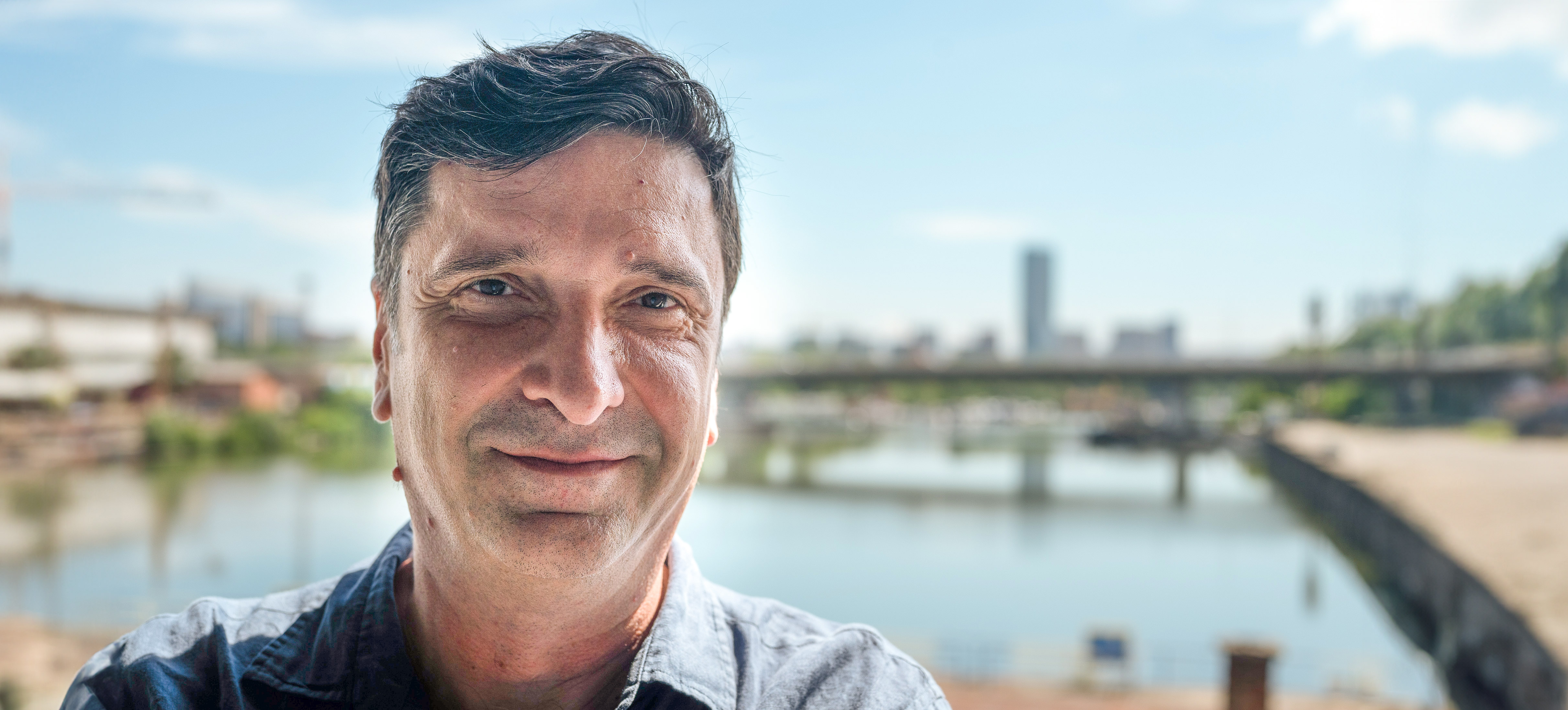Dragan Ilic: Humor grants us liberty
He is a psychology graduate in the media world. With him, we wake up and laugh, learn about the world and, we can freely say, become better neighbors and better people. As an author, he has created a series of popular shows, from "TV Manijak" to "Taksi B92," and finally the morning program "Buđenje," which has become a cult show.
In an interview for 011info, Dragan Ilić reminisces about his childhood and the rebellion that was growing within him, reveals why he considers the Faculty of Philosophy a bastion of critical thinking, and explains why humor and irony are necessary for us to be truly free.
How do you remember your childhood and growing up?
Whenever I think about it, I always do so with a certain degree of reservation because memory is a fickle thing. We somehow adjust or change those memories according to our subsequent life experiences, trying to find a connection between what was and what we are today.
Of course, from this perspective, everything always looks nicer and more romantic: from family relationships to social circumstances. However, I think we grew up unaware of the burden we carried. If you rewind the film a bit – the generation of 1969 was born just a quarter of a century after the greatest horror that had struck these regions in history – World War II. During that time, we managed to heal the consequences of those horrific events and have a more or less carefree childhood, which was, on the one hand, marked by an ideology that had a positive purpose of brotherhood, unity, and reconciliation. At that time, no one talked about the war, except for writing essays in primary and secondary school.
On the other hand, while that ideology protected us and tried to find a formula to neutralize hatred and those national and social phenomena, it also brought a lot of ideological baggage. So, we were first pioneers, then youth, and some ended up in the Communist Party. The twilight of that period was in the 1980s.
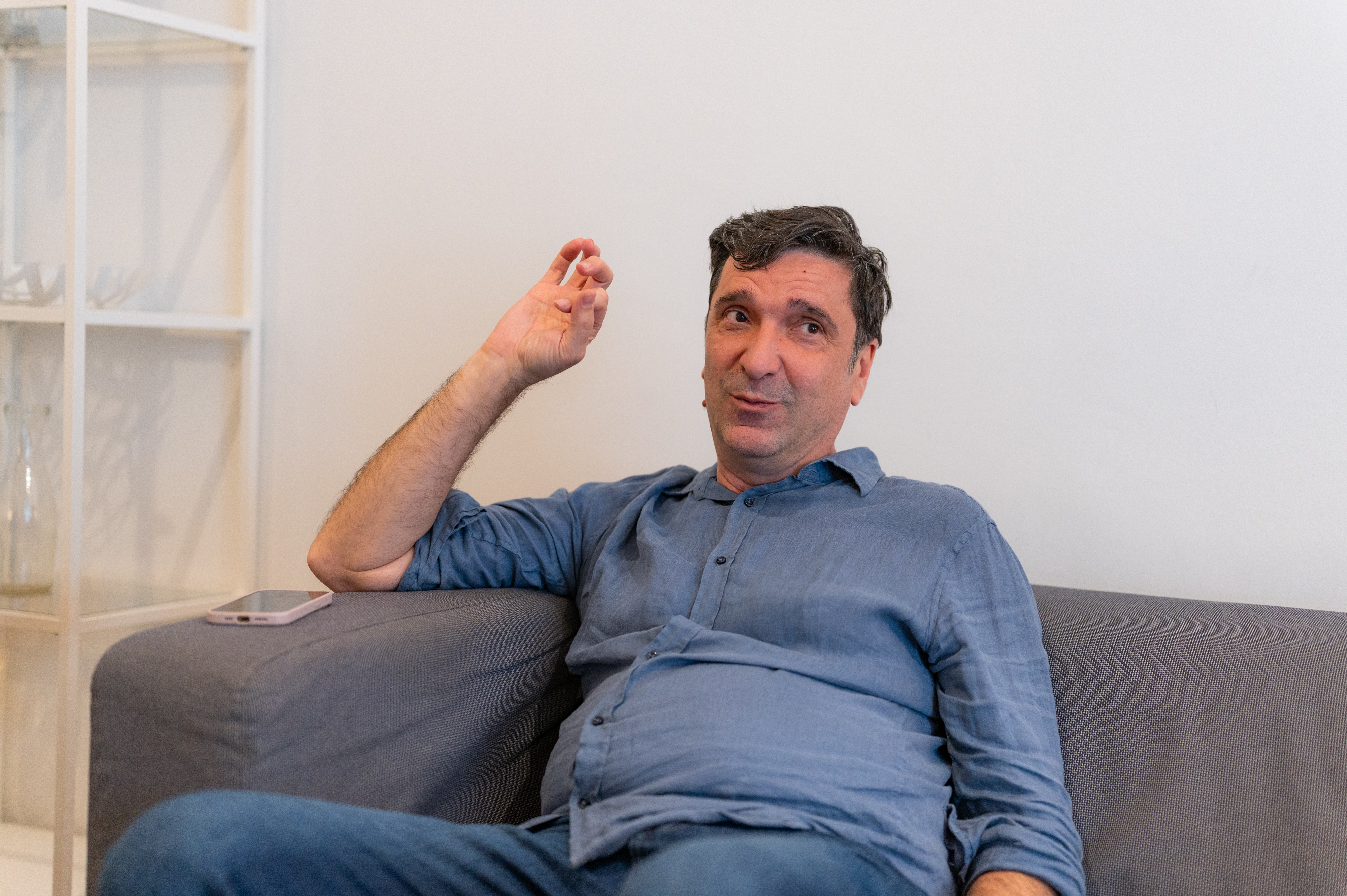
But, to return to the original question... Yes, childhood was carefree in terms of a certain certainty. We grew up in a society where you could plan things, where social differences were not so glaring, because the way of life was fairly uniform. And that was specific to Yugoslavia at that time – we led a privileged life of the Eastern Bloc, i.e., we had a touch of the West, but we were still a socialist country. It was a serious social experiment with its positive and negative sides, which you only realize later. However, for the most part, people were free from existential worries, and the middle-class life looked the same: from Vardar to Triglav.
Moreover, if you weren't a supporter of the system, you could still live decently. Because that same system always found a way to integrate its potential opponents. Hence, teenagers listened to rock and roll, punk bands received socialist awards, while our dissidents, like Brana Crnčević, Matija Bećković, and even Duško Radović, were in exemplary positions. So, that system managed to find a way to maintain peace by allowing so-called constructive and well-meaning criticism, of course, in the spirit of socialism. That's why we believed for a long time that it was a system that, perhaps not ideal, functioned. Therefore, people remember that era as a time of peace, security, and social prosperity. Everyone would start with a "Fića," then move to a "Lada," and then to a "Stojadin"... Everything just went its course.
I think that in the 1990s, when all that collapsed, we were at a crossroads of whether to align with the European Union or remain somewhere aside. We chose the other path, we clashed, and something happened that we never believed was possible.
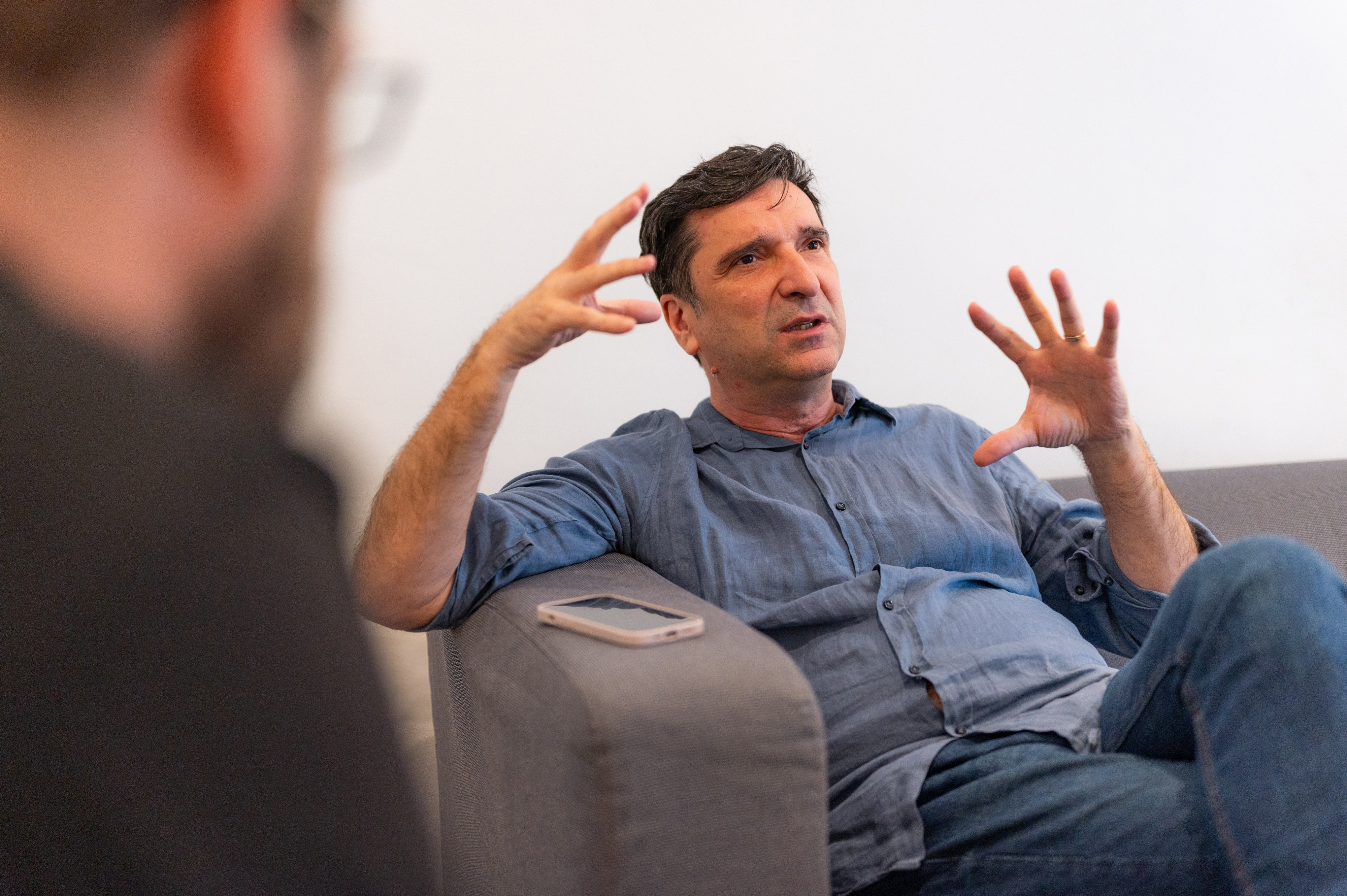
Your generation had the opportunity to see and live in several social systems.
We all hoped that our generation would avoid the curse of war. But that didn't happen. I think about it today as a parent. Will that fate follow the next generation? I hope not.
Again, there was a period when world conditions looked optimistic - Russians and Americans were exploring space together, rock music reached its peak, global phenomena like MTV and Live Aid appeared, and there was a fight against apartheid in South Africa. It seemed like people had a need to think about rights, freedoms… as if the world was changing for the better. But it turned out not to be so.
Then we had the 90s, which reached extremes for us, and we had to adapt. Those were the circumstances in which we had to live our lives. Then you realize that if you managed to maintain a certain line in all those social circumstances and think that you haven't done something you would regret while doing something that interests you, then on the Balkans, you can consider it a successful life.
My generation often had the impression that you had no control over your own life and felt like objects, not subjects, of social changes and history.
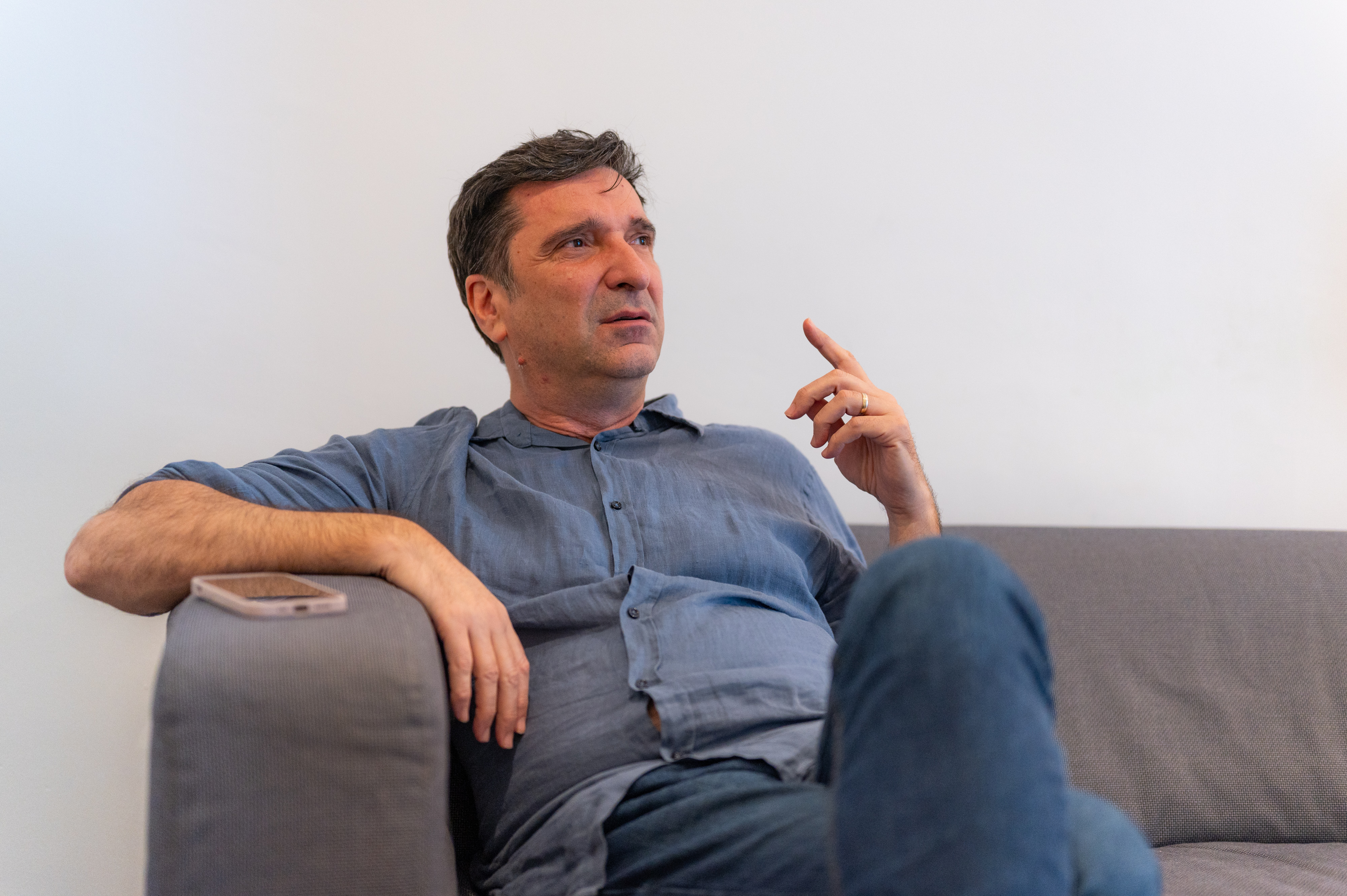
In such circumstances, as history shows, rebellions are born. Were you aware of what was happening back then?
Absolutely. It coincided with my adolescence when you naturally have the need to rebel while building your own identity, and with the new wave and punk, which were the musical and cultural backdrop. I think that rebellion gained particular significance for us because we already had a shaky state and social system. It was obvious that socialism was not like the old one when songs were sung dedicated to Tito, where discipline was relentless, and songs like "Tito is loved more than mom, Tito is loved more than dad..." Who loves Tito more than mom and dad?
In the late 80s, the baton was abolished, that cult was dismantled, socialism became increasingly liberal, while the specters of nationalism surfaced, carried by those who had emphasized the importance of social issues over national ones for 40 years. They harbored that seed when the party first split along national lines.
That was, in fact, a parade of hypocrisy, which opened the doors not only to chauvinism but also to primitivism and the negation of all the civilizational standards we thought we had achieved. At the same time, it was a natural source of rebellion. When you think about it, every generation has the need to change the world and consciousness and introduce something new. However, in organized and intelligent societies, it is listened to, while here, that rebellion was exploited to awaken nationalism, which overnight became the most important thing in the world.
How did your personal rebellion manifest?
Playing in a band, drawing graffiti... We even had graffiti with political messages when someone would write "Down with the red bourgeoisie" on the school wall. We imagined that it was possible to fix things and even do it peacefully, like in Czechoslovakia or Germany. We were closer to overthrowing socialism and establishing a multiparty system, drawing attention through music or writing. But, obviously, some structures wanted it to remain important who was of what faith or nation. However, there was a community of people across the former republics, and indeed abroad, an underground movement where music and fanzines were exchanged... We knew about great punk bands from Ilirska Bistrica, Ruma, Skopje.
I played with Đorđe Dimitrijević in a noise band called Demencija Prekoks. As the name suggests, it was about youthful madness. However, that band had two cassette releases under Metropolis Records, and our greatest achievement was in the early 90s when John Peel played our track "I Shine and Disappear" on his BBC show Sessions, dedicated to music from warring sides. To say the least, I was beside myself with joy.
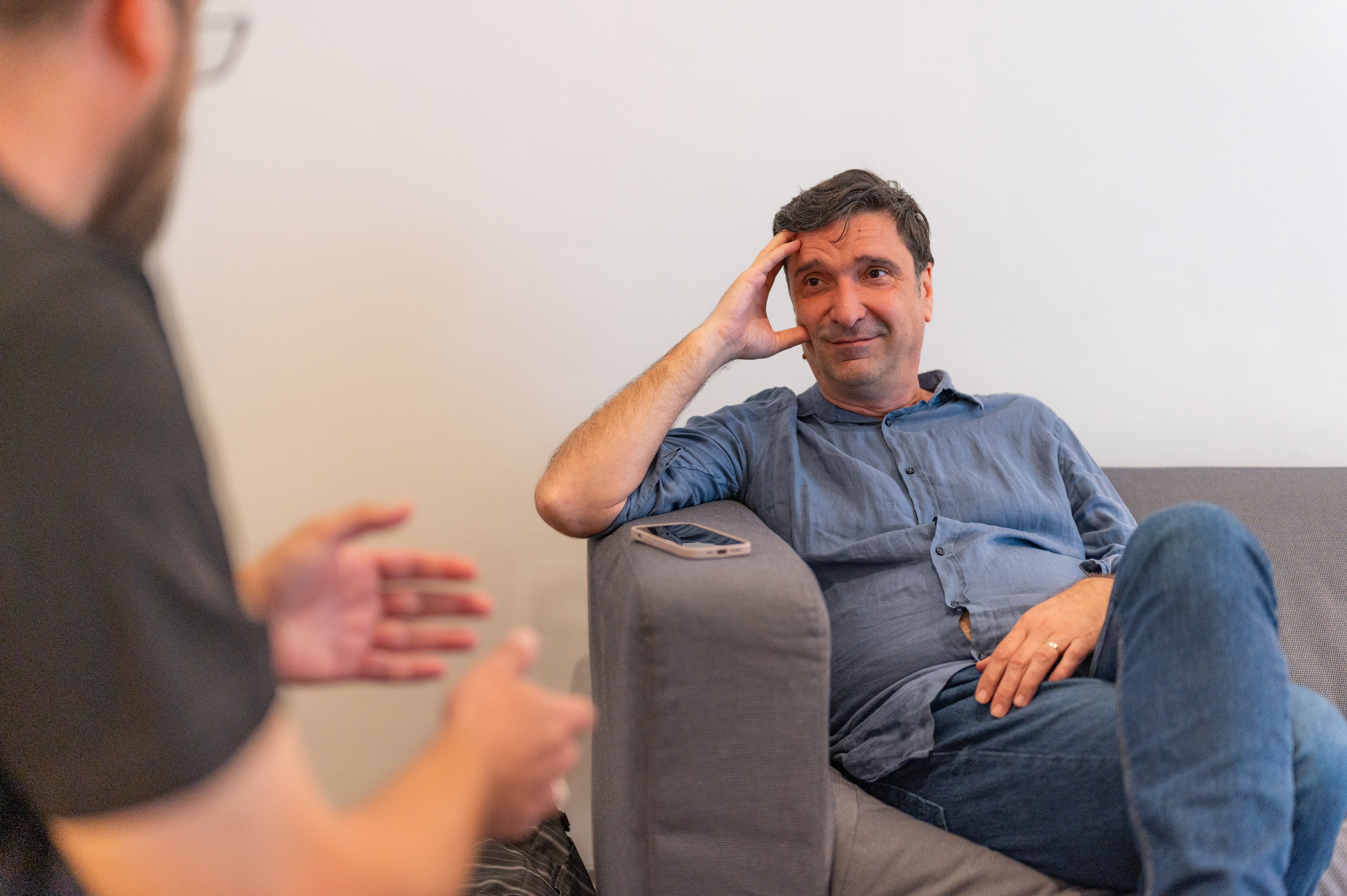
What made a musician turn to psychology?
I didn't think of it as a career, but I was interested in it, and even today, I am equally interested in understanding people and social processes. Besides that, the decisive factor was that I considered the Faculty of Philosophy in Belgrade a beacon since Praxis. It was a place where learned people engaged in serious ideological conflicts with the establishment, some people lost their jobs. That was a whole generation of professors, among whom was Dragoljub Mićunović. Psychology was particularly targeted. There were also famous speeches by Tito, in which he said that "Proletarians have no subconscious."
I desperately wanted to be part of the Faculty of Philosophy, that bastion of free speech and critical thinking. The enrollment and start of my studies were marked by professors like Slavoljub Radonjić, Predrag Ognjenović, Boško Popović, Ivan Ivić... It was the crème de la crème of the faculty, and I am incredibly glad I attended their lectures. I am glad that even today, the spark of critical thinking and reflection on society and our position is preserved.
However, the Faculty of Philosophy was also the birthplace of some very right-wing movements that brought a patriarchal and traditionalist view. At one point, the Faculty of Philosophy had, in a small scale, an ideological display of the two currents we can still recognize in Serbian society and politics today – the national, traditionalist, and the more liberal one. So, the dichotomy was a completely normal and visible phenomenon at the faculty, which added a special charm during organized forums and debates we had. This was especially evident during the student protests of the 90s.
All in all, the Faculty of Philosophy nurtured that tradition, and psychology captivated me, so it was logical to be there. Hand in hand with that was my work at Radio B92, where I pursued that job with an interest and knowledge I gained from studying psychology. In the end, the faculty enabled me to think broadly and unburdened and to try to understand people and phenomena before categorizing them in value terms, without giving some hasty judgments.
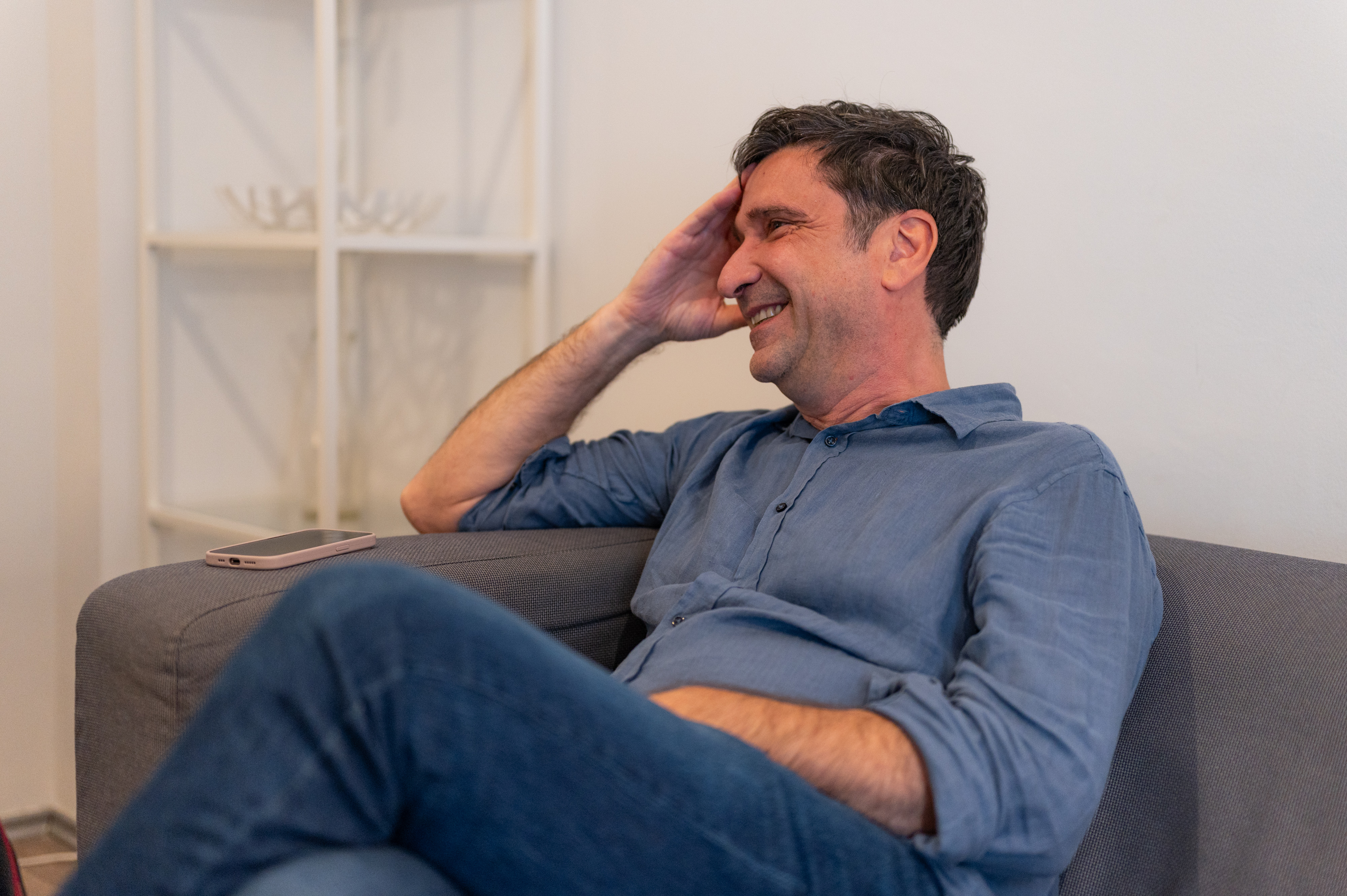
You mentioned your work in the media, where you've established yourself as a host, author, editor... How would you actually characterize yourself professionally?
In the broadest sense, I think I'm a journalist. Why? Because that’s the easiest way to encompass everything I’ve done in the media world. It all started at the aforementioned B92, which was my journalism school. Just as the Faculty of Philosophy was an intellectual center, in the 90s, B92 was an anarchoid group where all the employees wanted to oppose the then president of the country, Slobodan Milošević, while trying to keep their sanity during those crazy years. It was a hub for journalists, artists, politicians, social activists, and music editors, skillfully brought together by Veran Matić, who had the insight to understand that B92 should be a gathering place for people. We all had a common point – we knew what we were against. The problems arose later when it was necessary to decide what we were for, which was much harder.
I was invited there by Darka Rusavljević, the then editor of the culture department. At B92, I met wonderful people, including my future wife, and spent most of my days in the editorial office. What we did at that time made sense to me, and that’s what kept me in the country, even though many were looking for ways to go abroad. And, to be clear, I don’t present myself as some kind of pioneer or hero. None of us made a big deal out of it in that context; it was simply a normal and logical sequence of actions, and it’s not like we had many choices.
Mostly, that’s how the then 92 was formed, which resembled more a social movement with a guerrilla setup than a media outlet. When the time came to organize it more systematically, hiccups appeared. Because it’s a strange process when an anarchist commune has to adopt management and some rules. Not because everyone wanted to be in charge, but because we were all equals.
However, the experiment called B92 had its function, purpose, results, and historical moment, and it lasted as long as it needed to. After all, it’s not the first or last media outlet that didn’t manage to transition successfully after Milošević's fall. Today, when I look back at that period, I can only say that I am proud.
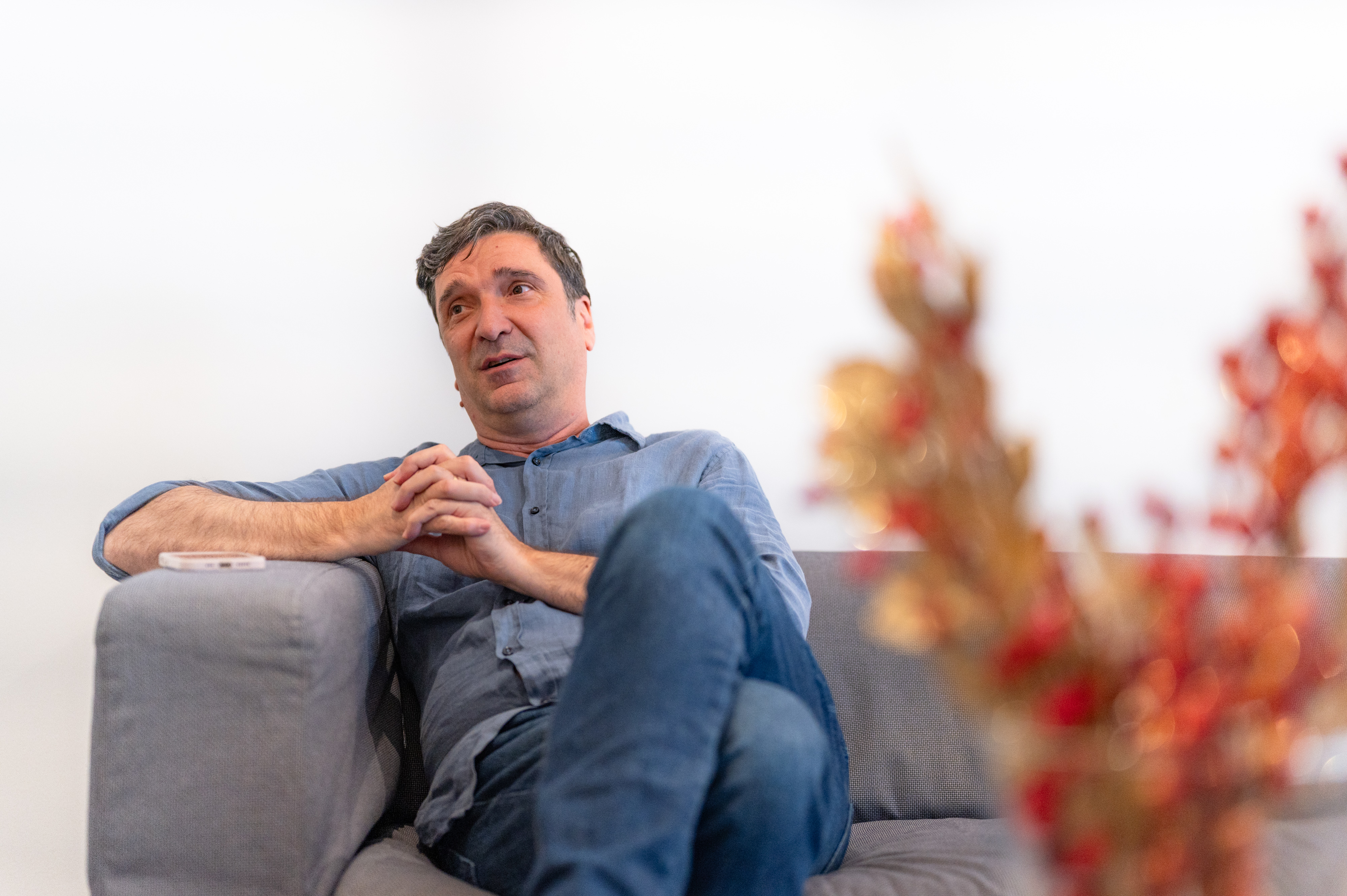
Your period at B92 was marked by the show "TV Manijak," which had a very innovative format for our area.
You could say that. It was a time before YouTube, where we recorded segments on VHS tapes. That show actually started on the radio in 1997, in collaboration with three employees: Goran Moki Mojsin, Radoslav Raša Pavković, and me. Soon, Raša, as the director, gave up, and Moki and I continued to work for many years.
The idea was to remove the image, because the image can hypnotize, and let the program run only on the radio, which caused quite a stir. Listeners actually started listening, simultaneously confronting the bizarreness of the content. When B92 became a television station in 2000, we transitioned to a video format.
I discussed this with Bojana Lekić, who was our editor at the time. We recalled the first meeting where the show’s authors gathered: Moki and I with TV Manijak (where our friend Vasa from the band “U škripcu” was responsible for animations for the TV edition), Maja Uzelac with Cultural Knockout, Dušan and Dušan with Cyclotron, Kesić with his show, as well as people from Low Fi who collected and created low-budget video programs. Each evening, one of these shows aired. Honestly, I believe that was the best television period, and then Big Brother came onto the scene...
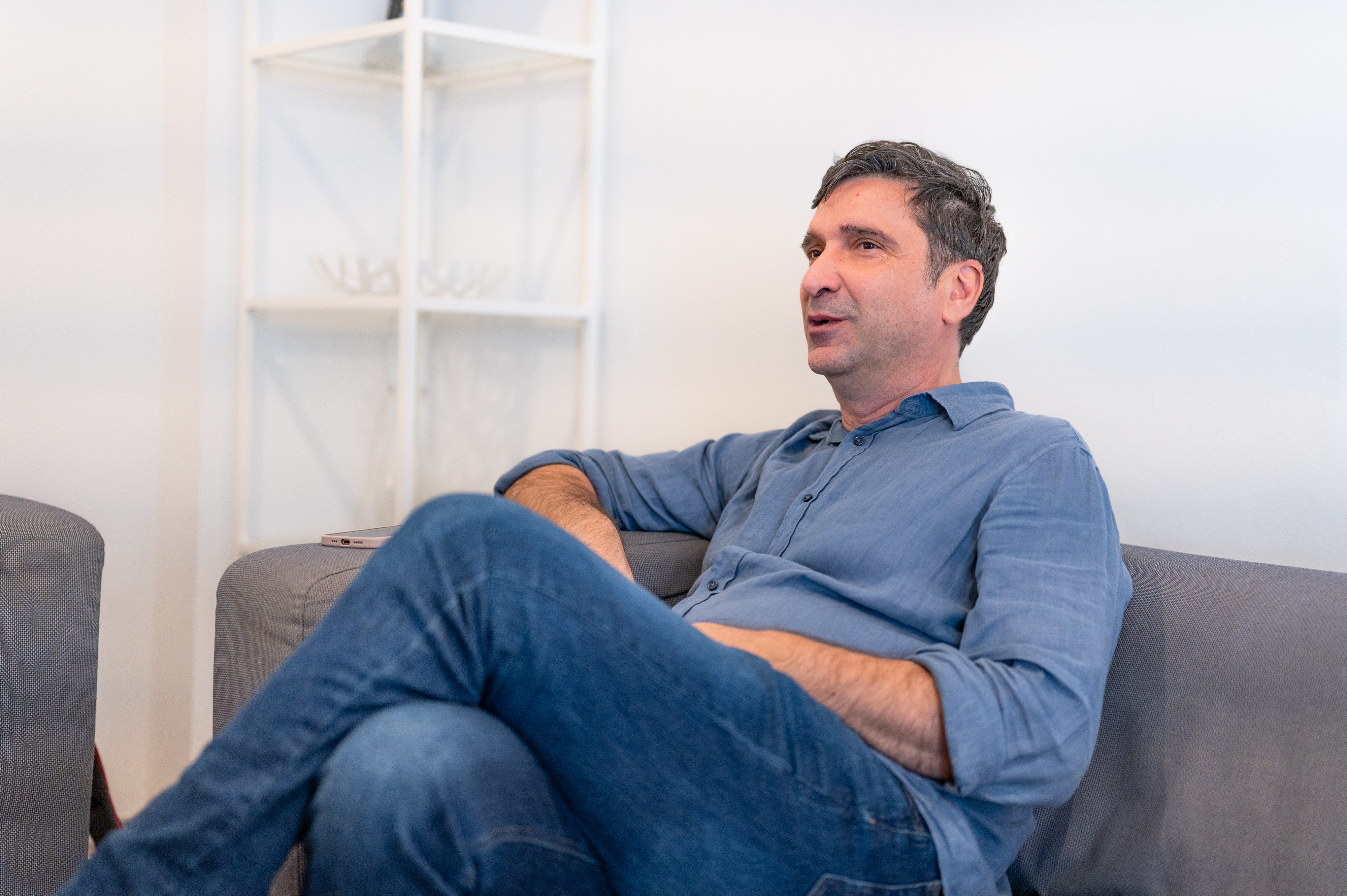
Why did you incorporate humor into your TV and radio appearances?
You see, when there are serious social upheavals and dramatic situations, when the amount of history per capita becomes unbearable – which has certainly been the case for us over the past 30 years – it’s necessary to have a healthy dose of self-irony, followed by irony. It is essential. Not to make things meaningless, but just to put them in perspective. Even the greatest revolutionaries pick their noses. That’s human imperfection. If it weren’t so, you’d get fascism where everything is monolithic, and no one laughs, and if something is funny, then it’s subversive.
Any uncritical and complete submission to an idea, for which you are ready to commit the greatest atrocities in this world, falls apart before a mild and ironic smile. Don’t forget, even Julius Caesar, as the absolute emperor of the world, always had two people with him: one who held a victorious laurel wreath above his head and another who whispered in his ear, “You are mortal.” You shouldn’t take yourself, or others, too seriously – that’s the essence.
For instance, whenever I saw the casual side of Josip Broz – on the beach in "kidney shorts" – he reminded me more of my grandfather, and I could relate to his character more easily. He had the ability, without much effort, to look like any other Yugoslav, something that most people today cannot manage.
That’s why I’m afraid of today’s deadly serious figures, where everything is under absolute control. That’s a state where there’s no entropy. That’s death, and there’s no dose of chaos. When everything is arranged like that, it resembles perfectly assembled blocks in Tetris, and that’s ultimately the end of the game. Therefore, I believe that humor, not with the idea of finding faults but humanity, allows for a greater degree of freedom and, at the same time, is a tool for resisting in situations where you feel you have no influence over what’s happening around you.
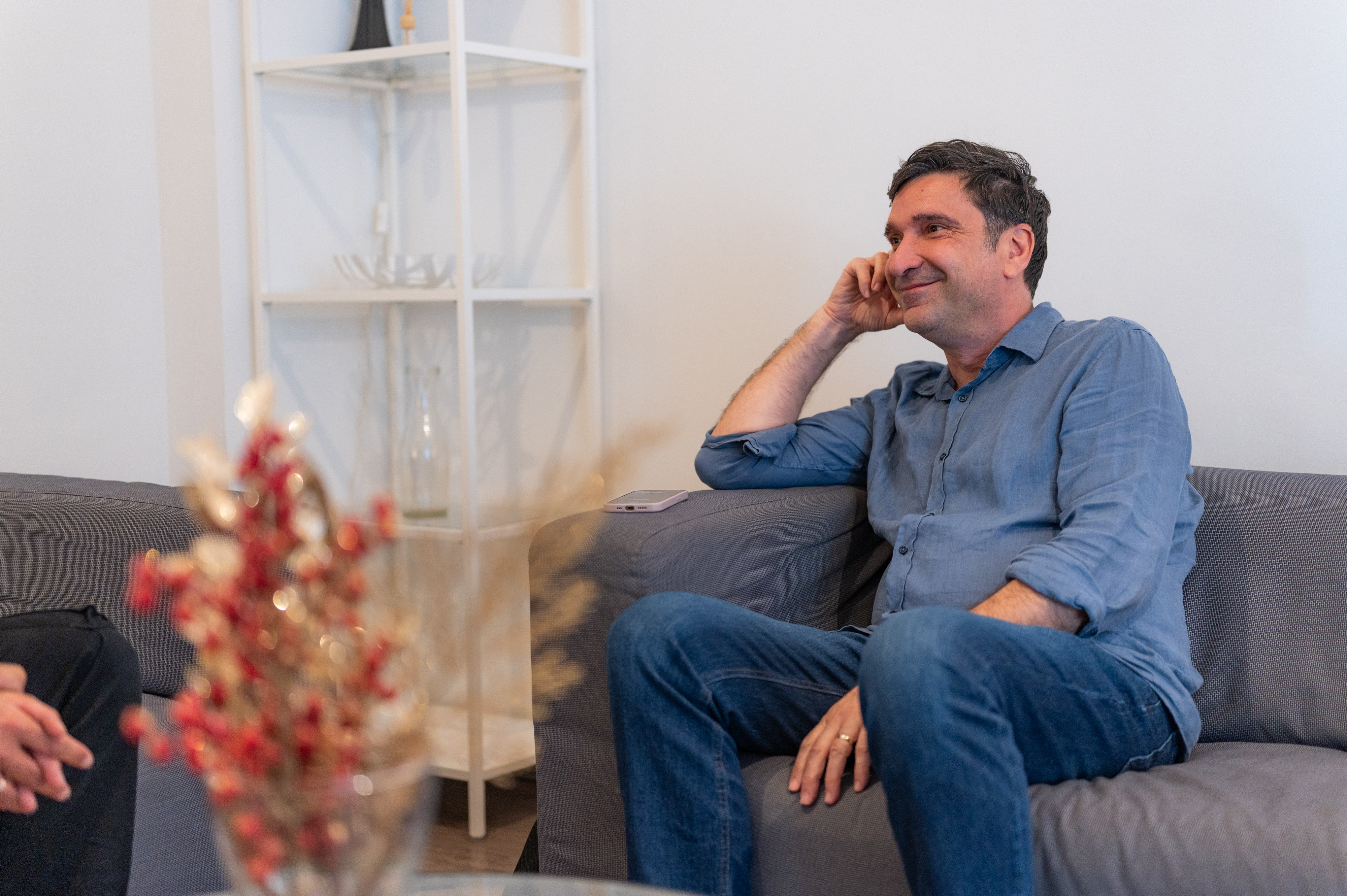
The show “Buđenje” has become a cult favorite, first on the radio and now on Insajder TV. How difficult was it to create such a show amidst strong competition?
It was a series of circumstances when Gorica Nešović and I met in 2003. Since no one wanted to get up early and do the morning show, the two of us decided to take it on, with a few things in mind. Namely, our intention was to create a different program, to transmit the atmosphere of the beginning of the day through the radio waves with us. It worked instantly because we didn’t fake anything – we were ourselves, i.e., parents and citizens wrestling with the same questions, dilemmas, news, and (mis)understandings as our listeners. Consequently, they easily identified with us.
In this whole setup, there’s one more extremely important thing that has remained unchanged to this day, thanks to Gorica’s spirit and Dejana’s positive energy, which is to remind people every morning that it’s another unique day in their lives. In this digital world, where all media are fighting for your attention, trading it and suggesting you buy something, to spruce up, we emphasize the need to do something good for yourself, your family, and society and make the most of the day, not waste it. Why? Because life has no reruns; it’s a premiere, and you need to be aware of that, as well as the fact that you’re not entirely helpless and can actually change some things for the better, even on a small scale.
That’s the whole mystery of “Buđenje.” Even when we moved the show from one broadcaster to another or transitioned to television at Brankica’s invitation, we adapted the format. Now you can listen to and watch us on small screens, apps, YouTube, social networks, in real-time or delayed, but our approach has remained the same. I still don’t come in a suit and tie, nor do I bring guests who tell the listeners and viewers what’s important today, because that’s a huge cacophony that has nothing to do with real events in our lives.
So, we strive to stay on the level of “Buđenje,” to awaken your awareness and responsibility to do something good for yourself today and not let the day go to waste. That’s what motivates us to get up every morning at 5 AM and come to work. However, with the transition to television, we got new energy because younger people participated in packaging the new platform more in line with the audience’s needs, while Dejana and her voice rejuvenated the impression of “Buđenje” and started attracting a younger audience. So, Dejana is responsible for beauty, and I’m responsible for looking like someone who got up before dawn and came to work.
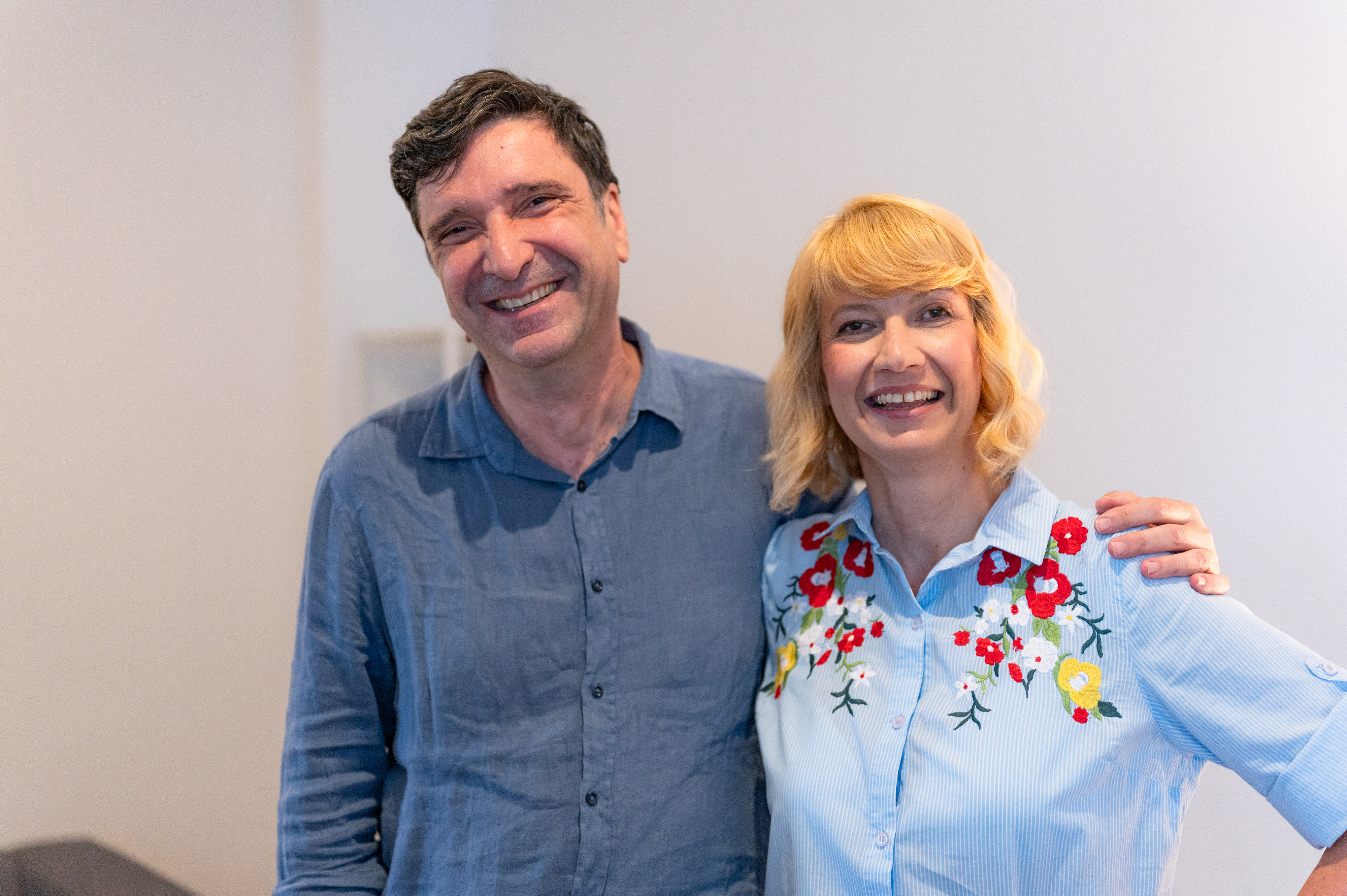
What are your plans for the future?
We are preparing a mobile app. When it sees the light of day, users will be able to play and listen to “Buđenje” in real-time or delayed without any registration. At the same time, this app will give us the freedom to play and create playlists with music for the morning, afternoon, evening, vacation, romantic moments, etc.
This will be a new step out of the usual form. To be honest, I’m very satisfied with how everything looks right now and the reactions, but if it can be made more interesting and better, I’m all for it. This was made possible by our collaboration with Insajder TV, which offers a space of freedom, and now we can play around.




 14 ℃
14 ℃

